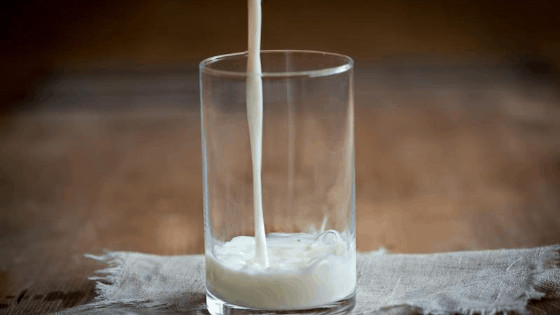
09 Nov Why Ditching Milk Is Needed
You’ll hear it everywhere – milk does the body good! But, what if I told you that you needed to be ditching milk? What I’m going to be talking about today is NOT the milk you get farm-fresh that isn’t pasteurized. That can be some raw goodness right there! What I am talking about is that gallon of milk you purchase at your local grocery store from the basic factor farm that can be whole milk, 2% milk, fat-free milk…..that junk!
I’ve been in your shoes thinking it’s healthy. When I was younger, I was in your shoes of starting the day off with a glass of milk and having that glass of milk to dip your cookies in. (I haven’t always been healthy.) It wasn’t until I started diving deep into nutrition that I realized that gallon of milk I’ve been purchasing was actually harming my health.
So, what’s so bad about it?
Ditching Milk
Factory Farmed Cows
I’ll be the first one to tell you that I try my hardest to avoid supporting factory farmed cows. In this day and age, it can be hard. Especially when you are eating at a friend’s house or you’re out to eat. But, a major thing that you can do to avoid supporting factory farmed cows is buying that gallon of milk. That milk is from cows that aren’t humanely raised, stuck in a factory without having the ability to roam the pastures, eating GMO-filled grains (when they are supposed to eat grass for optimal health), and can be injected with hormones. When the cows are living in these conditions, the byproducts they make aren’t healthy. Most big gallon jugs that you buy at the grocery store are from THESE FARMS!
Side Note: Organic milk just means that the cows are fed “organic” grains – doesn’t mean the cows is pasture-raised. They are most likely still in a factory farm style, if not specified. And the next couple of things you learn below, still is relevant even to organic milk.
Pasteurization Damage
Most the gallons of milk available in stores are high or ultra pasteurized! What exactly does this mean? Since most of these factory farms are not an ideal environment, it’s recommended to heat up the milk to high heat to kill any bad bacteria in the milk, BUT that also kills any good bacteria (that’s good for our gut!) and can denature proteins and decrease vitamins and minerals that are heat sensitive. Not only are you not getting the nutrients you might think you are getting, it also kills necessary enzymes that is needed for digestion. Lactose intolerant anyone? A natural enzyme that is killed during the pasteurization process is lactase, which helps digest the lactose, but when it’s killed it’s harder for us to digest. Make sense?
A1/A2 Hypothesis
Most conventional milk that you can purchase are from cows that produce the A1 protein in dominance. In the Indian Journal of Endocrinology and Metabolism, various theories have been made with the increase risk of cardiovascular disease, diabetes, and more when you drink milk from cows with higher A1 protein. While more studies need to be done, the studies that have been done are supporting this.
Epidemiological evidences claim that consumption of beta-casein A1 milk is associated as a risk factor for type-1 diabetes, coronary heart disease, arteriosclerosis, sudden infant death syndrome, autism, schizophrenia etc. A broad range of studies from American and European investigations has shown reduction in autistic and schizophrenic symptoms with decrease in A1 milk intake. Further, animal trials have also supported the linking of type-1 diabetes to milk exposure in general and A1 beta-casein in particular.
If you aren’t able to find local raw farm fresh milk, plant based milks like coconut and almond are always some of our favorite choices. Next time you pass the milk section while you grocery shop, you’ll be educated on what you are really putting in your cart.
Are you ditching the milk after learning about this?


